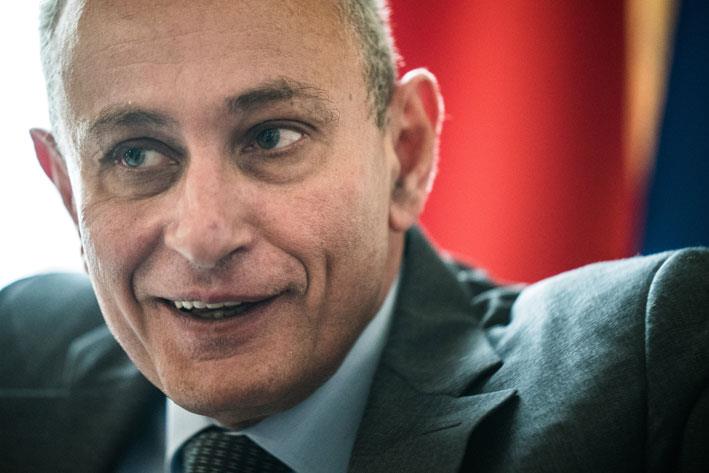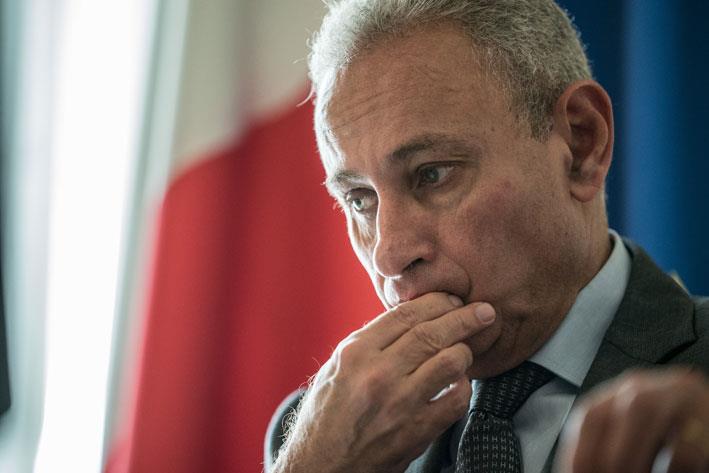While the activities and initiatives carried out by the Union for the Mediterranean (UfM) in the region are not well known in Malta, its Secretary-General, Nasser Kamel, explained that the Maltese and other regional citizens have most likely worked on projects in which the Union was the key players.
He noted, however, that most people are aware of Euro Mediterranean Cooperation, which structures and integrates numerous sectors such as higher education, transport and trade.
Launched in 1995 as The Barcelona Process, the aims of the project were to strengthen relations between Europe and Southern Mediterranean countries and to promote a Euro-Mediterranean association. Then, in Paris in 2008, the Process was re-launched as The Union for the Mediterranean, which today brings together the 28 countries of the European Union and 15 countries of the Southern and Eastern Mediterranean.
Kamel explains how one major project on which the Union has focused is the Regional Dialogue Platforms, a close interaction in which not only over 2,000 stakeholders are involved but which is also open to members of civil society: a platform for sharing experiences and promoting concrete cooperation projects, which is one of the Union’s main purposes. He goes on to mention that the Union has fostered and mobilised funds for numerous projects, identifying over 50 projects which resulted in over €5 million in funding.
Responding to regional challenges such as the Arab Spring
With regard to the Mediterranean’s current pressing issues, Kamel stresses that the Union is not at the forefront of handling political issues, but works more towards resolving the root cause of such challenges. He said the Union works towards creating an area of peace and stability by means of regional integration through enhancing economical and infrastructural relations. It focuses on creating co-operation to ease tensions both internally and between member states.
With regard to the Arab Spring – just a year before the Union was being renamed and rebranded and against all the odds – the Union was able to create and maintain a structure that focused on trying to achieve results for those regions that were facing a challenging period. Despite the instability which member states of the Union faced during this period, it managed to create the infrastructure for a better future. Kamel went on to say that while before there had been problems with holding meetings in such member states, now they are taking place on a regular basis, trade ministers are now trying to create trade-free zones and transport officials are trying to create transport that will link the north and the south of the region. He said that not only had the project survived, but it had actually kept going at a pace and is now at the point where the pace is increasing much more.

Dealing with the splintered Mediterranean migration crisis
Discussing the Mediterranean, Kamel said that it has historically always been a transit region, not just a source of migration. When one looks at the real migration zones they begin outside the Mediterranean. He stresses the fact that the Union does not focus on managing migration, but rather the root causes and that the Mediterranean needs to start looking towards its neighbours – both Africa and Asia – to see if it can help with these root causes.
The UfM is not at the forefront but instead focuses on migration as a result of numerous challenges such as environment, climate change and employability. Once more, the Union is creating and helping to develop those economies in both the north and south to become more resilient and create employment for their own citizens. Kamel said that their focus is more on legal immigration systems and exchanges between nation states, rather than handling migration politically
Main achievements 10 years down the road
The main achievement would be the structure of relations between the southern and northern shore, thereby having a defined relationship in areas such as trade, industry and the environment – to name but a few. One tangible achievement would be the Mediterranean Initiative for Jobs, better known as Med4Jobs. This initiative was intended to help increase employability among young people and foster the development of entrepreneurship. Kamel said that Med4Jobs had provided over 200,000 jobs in the last few years. He pointed out that the Union has also launched the Desalination Facility for Gaza, an initiative for cleaner water for those living in difficult circumstances. The main goal of the Union is to create infrastructures to help develop regions of cooperation in than those lacking it.

Over the next 20 years
Quoting one of his predecessors, Kamel said that the Union itself is not a project of union, but a union of projects: those projects being free trade, more transport networks, more cooperation on energy and solutions to environmental challenges. He said that the work done in these sectors will not only benefit the Union but also the citizens of the Mediterranean. It is estimated that 70 per cent of our population will be living on the shores of the Mediterranean and alongside Malta will be Italy and Egypt, as more people move towards the sea.
He stresses the importance of reflecting on a sustainable Blue Economy for the Mediterranean. No big glorious dreams, he says, but, rather, pushing the development of the region to have more positive results.